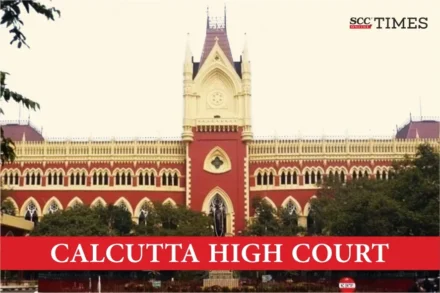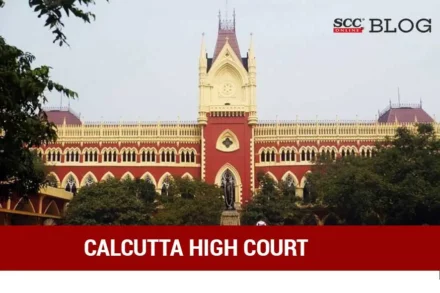
Calcutta High Court affirms Larica Inn’s rights to purchased building’s roof-top based on conveyance deed and mutation
Calcutta High Court deemed KMC’s approval of the additional building plan without considering Larica Inn’s rights as erroneous.

Calcutta High Court deemed KMC’s approval of the additional building plan without considering Larica Inn’s rights as erroneous.

Calcutta High Court held that the appellant at best can make an endeavour before the fact-finding forum because in exercise of writ jurisdiction, the High Court found no tenable and cogent ground on which the impugned judgment can be faulted.

“Where the job continues without even any performance appraisal or periodical renewal, and the person engaged in the same would be termed as a “trainee”, as it is in the present case, the same would be considered as unfair labour practice.”

“The compliance of provision under Section 202 of the CrPC, 1973, is compulsory and unavoidable for a Magistrate before issuance of summons in case of alleged offender who resides outside his territorial jurisdiction.”

Calcutta High Court held that a juridical person cannot be physically apprehended, and such an order is not executable.

“Section 482 CrPC, 1973, iterates the inherent power of the Court, which is extraordinary in nature and assiduously to be exercised to prevent the abuse of the process of any Court or otherwise to serve the ends of justice.”

“Revisional jurisdiction is basically supervisory in nature and may be exercised only when there is glaring defect in procedure or there may be a manifesting error on a point of law, resulting in a flagrant miscarriage of justice.”

Calcutta High Court found no loopholes in the trial court’s analysis of the evidence, concluding that the appellant’s guilt under Section 304 IPC was proved beyond a reasonable doubt.

Calcutta High Court delved into the legalities surrounding the presumption under Section 139 of the Negotiable Instruments Act, 1881, emphasizing that it is a “rebuttable presumption”.